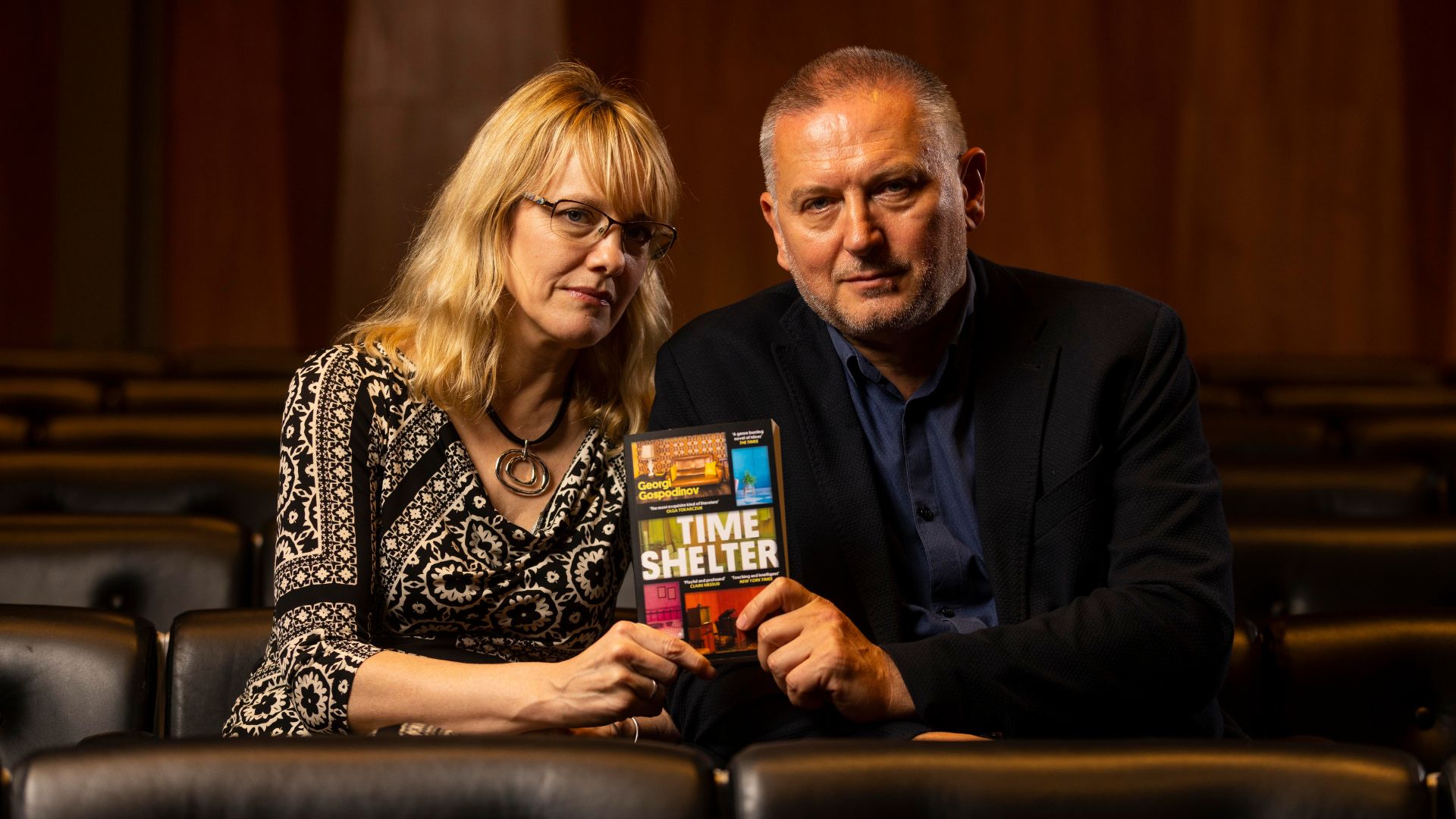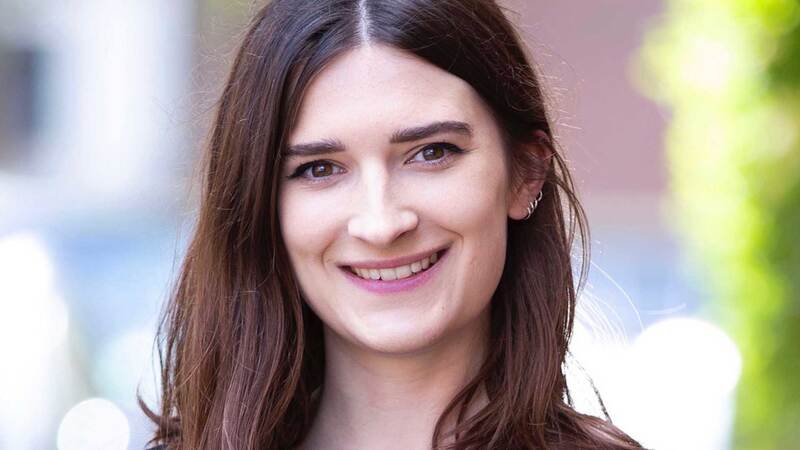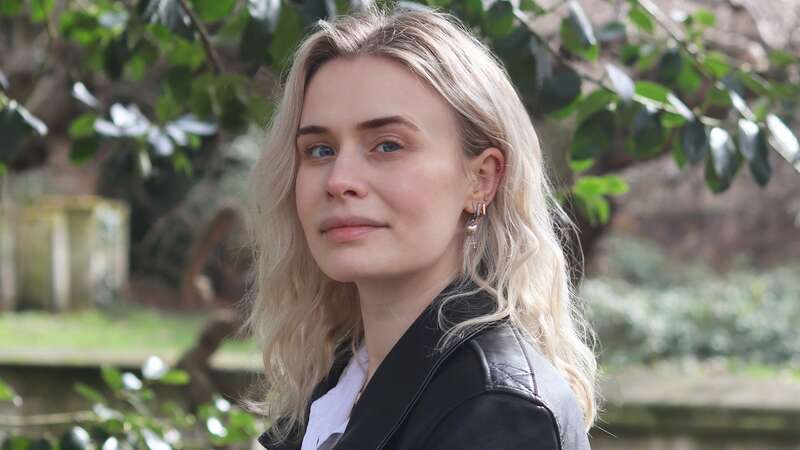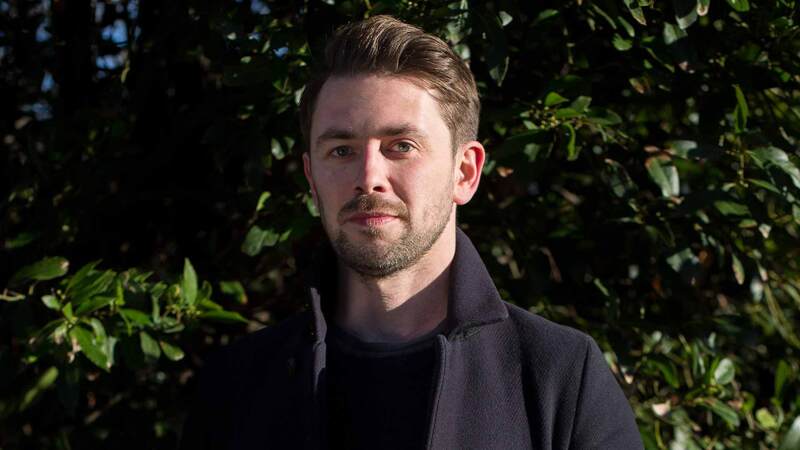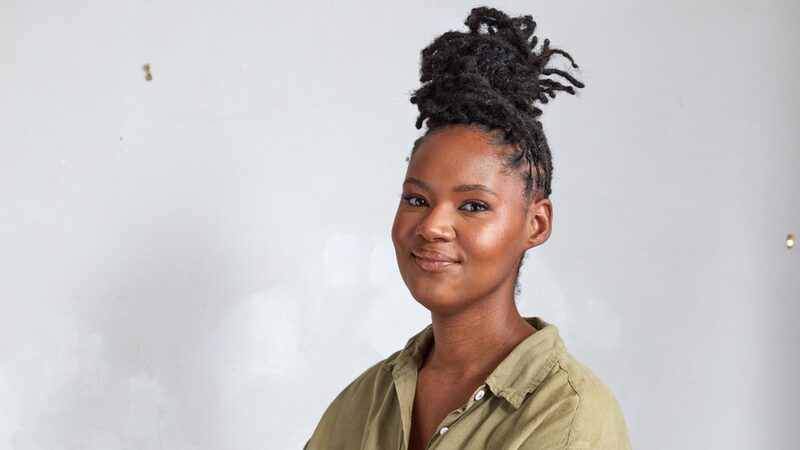You are viewing your 1 free article this month. Login to read more articles.
Gospodinov and Rodel win 2023 International Booker with 'brilliant' Time Shelter
Time Shelter (Weidenfeld & Nicolson) by Georgi Gospodinov and translated by Angela Rodel, has won the Booker International Prize, marking a first for both a Bulgarian novel and for the publisher.
Announced at a ceremony at the Sky Garden in London on Tuesday (23rd May), the winners’ £50,000 prize will be divided equally between the author and translator. Gospodinov said he was "honoured" to receive the award for his first book to be published in the UK, noting tomorrow (24th May) is the Day of Slavonic Alphabet in Bulgaria, his favourite public holiday, as it celebrates writing and language.
In a pre-ceremony briefing on Tuesday afternoon, chair of judges, novelist Leïla Slimani discussed the judging process and the winning qualities of Time Shelter alongside Fiammetta Rocco, administrator of the prize and Gabby Wood, c.e.o. of Booker Prize Foundation.
The 296-page novel explores the concept of a safe space for people with dementia where every room represents a decade from the past, and poses vital questions about the nature of connection.
Slimani said: “We wanted to reward a book which both focuses on both the individual and the collective, on what is most intimate and what connects us. A book that questions the world around us but which through its language and literary references is also a universal world.”
She described it as “a brilliant novel full of irony and melancholy, a profound work that deals with the contemporary and also philosophical question of what happens to us when our memories disappear?” She praised the “sensitive and precise language” and added: “It is also a great novel about Europe, a continent that is in need of a future where the past is reinvented and nostalgia can be a poison.”
Slimani revealed there “was no shouting and no bloody arguments” during the deliberation. When probed, she revealed that the decision was “eventually unanimous”, though she revealed the final discussion took almost three hours overall. “It was not easy because we very much loved the other shortlisted books so we discussed for a very long time but at the end no one was completely heartbroken or disappointed, everyone loved this book,” she said.
It is the first time that Orion division Weidenfeld & Nicolson (W&N) has won the International Booker and the first time since 2017 that a corporate press has won, (when A Horse Walks into a Bar by David Grossman, translated by Jessica Cohen, won for Vintage).
Lettice Franklin, Gospodinov’s editor and publishing director at W&N told The Bookseller: "Time Shelter is a magnificent novel – timely, philosophical, very funny and profoundly moving – that asks urgent questions about what happens when the past invades the present. We are so proud to publish it at W&N and over the moon that Georgi and Angela and Time Shelter have been awarded this most prestigious of prizes."
Rocco said of W&N: “It’s obviously not a publisher one thinks of in terms of [it not being one of] the new independent publishers, but an honoured and honourable publisher which has been around for a very long time and... at least one of the people who founded it was a refugee [George Weidenfeld] who came from Europe who spoke four or five languages, so in a way it’s a tradition that isn’t terribly surprising.”
It is the second year in a row to have a new language which had never featured before in the prize, following 2022 winner Tomb of Sand by Geetanjali Shree, translated from Hindi by Daisy Rockwell (Tilted Axis Press), which could mark part of a bigger appetite for translated fiction, according to organisers.
Rocco said that “to have two winners in a row in languages which had never been shortlisted before is quite extraordinary”. She believes that it shows how translated fiction “is no longer specialised” and that “there is an amazing evolution going on which we even weren’t aware of until the last three months.”
She added: “We’re seeing it in the range of independent publishers, the presentation of books, the ways some of these publishers are specialists of particular languages, the presentation of languages we’ve never seen before. Personally I’d say there’s a big wave […] coming towards us [of translated fiction] and we’re beginning to see it.”
She cited Nielsen research which the prize commissioned, revealed last month as part of the shortlisting, around the surge of translated fiction particularly among younger readers with around half of all translated fiction titles now bought by people under the age of 35.
Time Shelter beat a shortlist of five other books including Still Born (Fitzcarraldo Editions) by Guadalupe Nettel, translated from Spanish by Rosalind Harvey; Boulder (And Other Stories) by Eva Baltasar, translated from Catalan by Julia Sanches; Whale (Europa Editions) Cheon Myeong-kwan’s novel translated from Korean by Chi-Young Kim, along with two French novels, The Gospel According to the New World (World Editions) by Maryse Condé, translated by her husband Richard Philcox and Standing Heavy (MacLehose Press) by guard GauZ’, translated by Frank Wynne.
Authors and translators of each of the six shortlisted books received a prize of £5,000 at the ceremony: £2,500 for the author and £2,500 for the translator (or divided equally between multiple translators).
Wood revealed that the recently launched film project with Mermade, which saw each book matched with a film, had resulted in 3.3 million views in the last week.
The judging process was comprehensive: the panel read around 30,000 pages of translated fiction in total and by the final stage had read each shortlisted title three times.
Slimani said of the panel: “We come from different worlds, we have different tastes but I think we succeeded in establishing a dialogue where freedom of tone dominated, where it was not a case of being the most intelligent.”
The jury also included Uilleam Blacker, a literary translator from Ukrainian, Tan Twan Eng, the Booker-shortlisted Malaysian novelist along with Parul Sehgal, journalist at the New Yorker and Frederick Studemann, literary editor of the Financial Times.
Slimani emphasised the importance of the prize overall which “reflects what we all aspire to… diversity”. She said: “[It is] stories told by different people coming from different places. It gives us the opportunity to have new heroes but also on a literary level to have new forms, new voices and new ways of dealing with language.”





